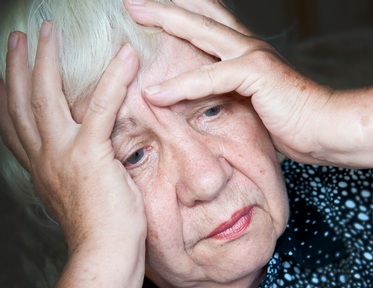Blue Monday 'trivialises depression'
On the day dubbed ‘Blue Monday’, mental health charities have highlighted depression can be a lifelong and debilitating illness and not just a daily concentration of the 'winter blues'.

Blue Monday is traditionally thought to be ‘the most depressing day of the year’ - a day when people are feeling flat after Christmas, or waiting for a long-awaited pay cheque, or, are simply fed up with bad weather and long, dark evenings.
But mental health charities and campaigners say this feeling of being generally low happens for most people at the beginning of the year, and doesn’t necessarily mean they are suffering from depression.
Stephen Buckley, head of information at the charity, Mind, said: “There is no credible evidence to suggest that one day in particular can increase the risk of people feeling depressed and suggesting as such contributes to damaging misconceptions about depression, trivialising a potentially life-threatening illness.
“One in six people will experience depression during their life. It can be extremely debilitating with common symptoms including feeling down, empty or numb, having no self-esteem, finding no pleasure in the things you usually enjoy or experiencing suicidal thoughts.
“There are certain things that may contribute to people feeling down at this time of year, such as post-Christmas financial strains, broken New Year’s resolutions, bad weather and short daylight hours. However, depression is not just a one-day event and can happen at any time.”
Mental health charities have grown more vocal in recent years about using Blue Monday as a way to highlight depression, as it trivialises the daily struggle that many depressed people experience on a regular basis.
It also compounds the stereotype that depression isn’t very serious; something which individuals should just ‘snap out of’. The statistics for depression in the UK paints a very different picture. Mr Buckley said: “One in four of us will experience a mental health problem in any given year, which can occur at any time for a number of reasons.”
Blue Monday, as a concept, actually stems from the travel industry rather than from any real observations made by health experts.
In 2015 a British holiday company commissioned a man at Cardiff University, named Cliff Arnall, to come up with a way of calculating “the most depressing day of the year”. This was to try to sell more holidays in January.
Mr Arnall then produced a ‘formula’ for calculating the most depressing day of the year, which took several factors into accounts, such as the weather, how long it’s been since the last pay day and how much time has passed since New Year’s resolutions have been broken.
The date usually falls on the third Monday in January, but can sometimes be the second, or even the fourth. But for most people with depression, the feelings connected with the illness usually last way beyond the first month of the year.
Mr Buckley has advice for anyone who has serious concerns about feeling low, depressed or their mental health in general. He said: “If you are concerned about yourself or a loved one then seeking support is one of the most important things you can do.
“Our website has information on depression including tips for helping yourself and guidance for friends and family. You might also find it helpful to talk to your GP, who can give you further information and discuss treatment options.
“Going to see your GP might seem daunting but it could be the first step to getting the help and support that’s right for you.”
Mind has also produced a guide to help people speak to their GP about mental health. You can visit mind.org.uk/findthewords or call the Mind Infoline on 0300 123 3393 for more information.
Latest News
 29-Jul-24
Dementia Bus gives carehome.co.uk staff insight into life with dementia
29-Jul-24
Dementia Bus gives carehome.co.uk staff insight into life with dementia
 27-Jul-23
UK's top home care agencies in 2023 revealed
27-Jul-23
UK's top home care agencies in 2023 revealed
 30-Nov-22
A quarter of older people keep their falls secret from family
30-Nov-22
A quarter of older people keep their falls secret from family
 29-Nov-22
'Covid-19 has not gone away' say terminally ill
29-Nov-22
'Covid-19 has not gone away' say terminally ill
 28-Nov-22
IT consultant who received poor care opens 'compassionate' home care business
28-Nov-22
IT consultant who received poor care opens 'compassionate' home care business